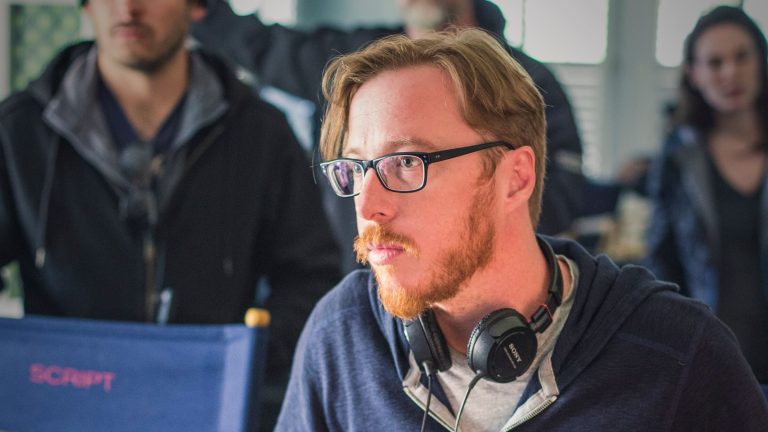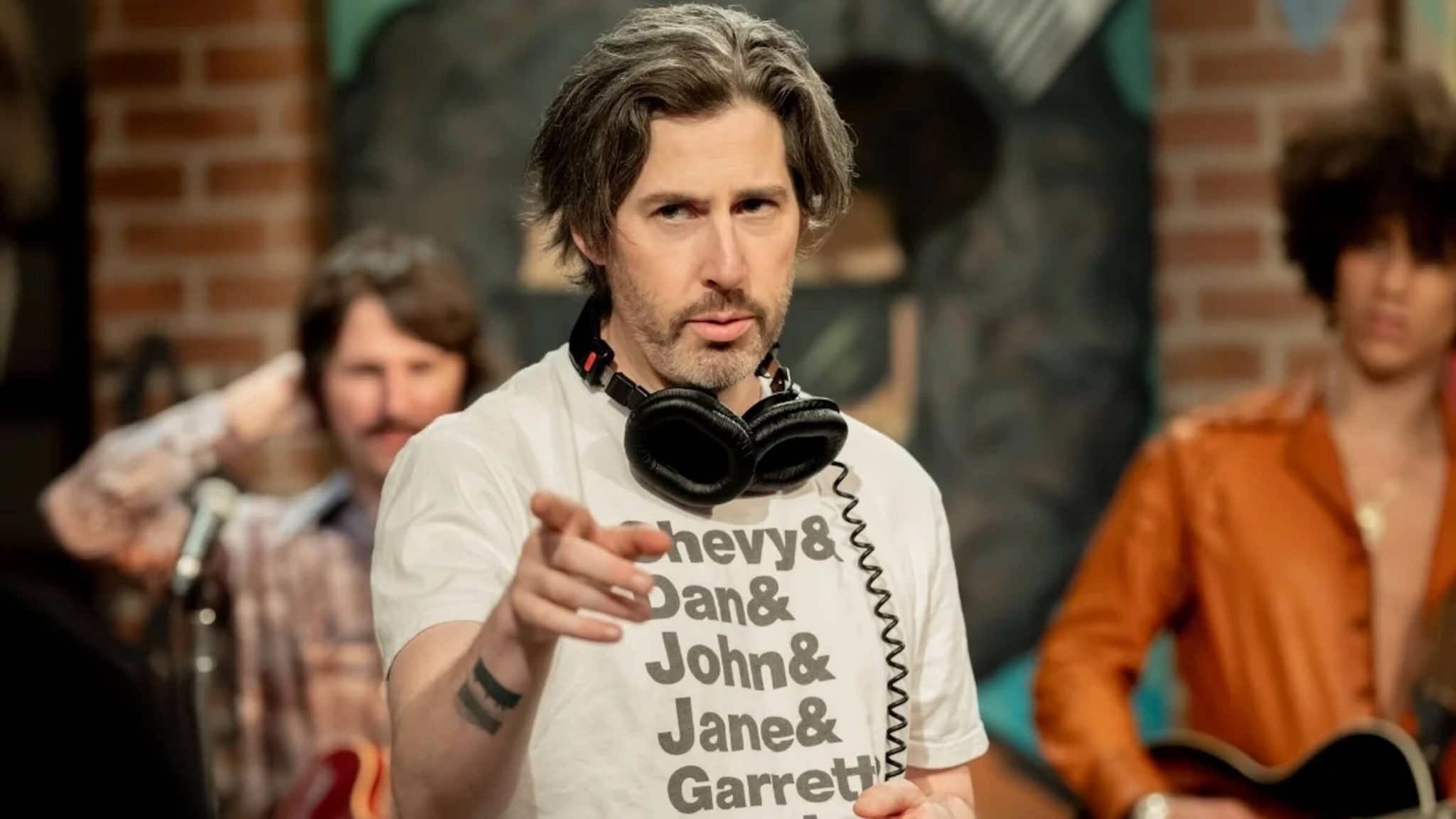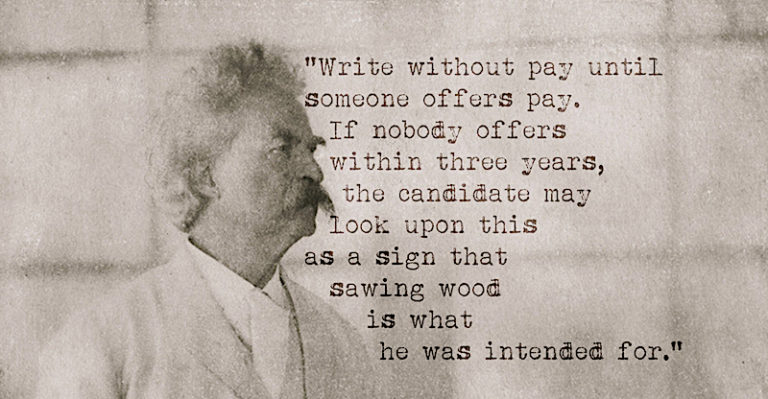
What screenwriting lessons can we draw from the words of one of the greatest writers of all time — Mark Twain?
Mark Twain was an adventurer and wily intellectual.
He was Born in Missouri, 1835, as Samuel L. Clemens. Clemens later adopted the pen name Mark Twain and went on to write two American literature classics — The Adventures of Tom Sawyer and Adventures of Huckleberry Finn. His short stories, essays, and novels have stood the test of time.
Here we feature some of Twain's best quotes about writing and apply them directly to screenwriting with our own elaboration.
"I conceive that the right way to write a story for boys is to write so that it will not only interest boys but strongly interest any man who has ever been a boy. That immensely enlarges the audience."
This is a fascinating insight that applies to the way screenwriters should search for story and character themes that everyone can relate to.
Catharsis is the most important element of screenwriting. When an audience member shows empathy for a character, they are clearly moved by the outcome of their story — good or bad. An easy way to accomplish this is by exploring universal themes.
Everyone remembers what it was like to be a young boy or young girl on adventures. And if you were to write a story around those adventures, you're not only attracting a young audience — you're also writing for those that once were young boys and young girls themselves (which is everyone).
Find universal themes to explore within your stories and characters.
"We write frankly and fearlessly but then we 'modify' before we print."
Writing has to be a fearless process once those fingers start moving. You have to get to the point where you need to get those words out. There's no greater thrill for writers. And every true screenwriter has experienced that sensation.
However, before you send the script to anyone, you have to go through the editing process. You need to modify that passion you've laid out on the page so that it communicates a cinematic experience. And that cinematic experience has to fit within the confines of a two-hour movie where we see a true beginning, middle, and end.
Fearless writing is great. But it's in the editing that the real cinematic story comes out.
Learn how to master the art of the rewrite with this free guide.
"It is no use to keep private information which you can't show off."

You need to get your work out there. You can't lock your screenplays away in a figurative drawer, endlessly tweaking them for months and years.
If you're writing your personal memoirs — or even a novel — that can certainly be a private experience because the process is often therapeutic. But with screenplays, you write for them to be seen. You write for them to be considered, purchased, produced, and shared with the world.
So your main goal should be to get the work where it needs to be as quickly as possible so you can show it off.
"You need not expect to get your book right the first time. Go to work and revamp or rewrite it."
The first draft is never the final draft, so don't be discouraged if it didn't turn out as you had originally intended. Final drafts are made in the rewriting process. You work at it, revamp it, and rewrite as necessary.
And sometimes even the final draft of a script just doesn't work out. So you move onto the next. However, you can always come back to that script. Maybe you needed to learn a few more writing lessons to figure it out? Maybe you needed more life experience or a different perspective on the subject manner? If you have scripts collecting dust in a drawer — and maybe you're mournful of them because you loved the idea so much — you can always return to work on them and revamp it.
"To get the right word in the right place is a rare achievement. To condense the diffused light of a page of thought into the luminous flash of a single sentence is worthy to rank as a prize composition just by itself."
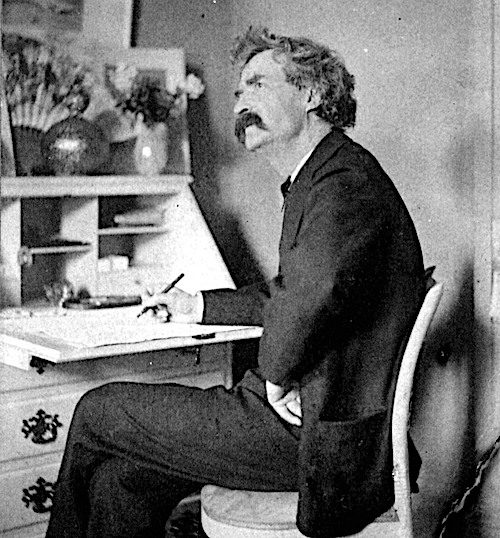
The ability to communicate a visual within scene description with just a fragment or single sentence is a mastery of the art of screenwriting that every screenwriter should strive for.
It's easy to take three to five sentences to describe something. When you can accomplish that with a single sentence, you're well on your way to becoming a great screenwriter that writes very cinematic reads. And cinematic reads are coveted amongst script readers, producers, development executives, agents, and managers. Those are the types of scripts that convey the cinematic story quickly and precisely as if a movie is playing on a screen in front of their eyes.
"Anybody can have ideas — the difficulty is to express them."
Ideas are a dime a dozen. Everyone has them. Even people who have no interest in becoming writers. It's the implementation of the idea in the form of a well-written screenplay that matters. Otherwise, that idea is just a feather blowing in the wind aimlessly.
"Let us guess that whenever we read a sentence and like it, we unconsciously store it away in our model-chamber; and it goes, with the myriad of its fellows, to the building, brick by brick, of the eventual edifice which we call our style."
Finding your own distinct voice takes time. You won't really discover it until you've written multiple screenplays. As you write them, you'll begin to see certain ways that you love to write. You'll use particular phrases, format, narratives, and any number of different elements that seem to attach themselves to you and your writing.
This is called style. And when you mold your own style, people will begin to see that you have an original voice within your work. And that is what you strive for to stand apart from the rest.
"When you catch an adjective, kill it. No, I don't mean utterly, but kill most of them — then the rest will be valuable. They weaken when they are close together. They give strength when they are wide apart. An adjective habit, or a wordy, diffuse, flowery habit, once fastened upon a person, is as hard to get rid of as any other vice."
Adjectives can be effective in communicating the way a character acts or speaks. However, when you overuse them in your screenplays, they lose their power. They become diluted. Thus, you must learn to use them few and far between to retain their power.
"A successful book is not made of what is in it, but what is left out of it."
Perhaps one of the most brilliant quotes about writing, whether it's a novel or screenplay. You must always strive to condense the story and leave in only what is absolutely necessary to tell it. There's nothing worse than an overwritten screenplay that could have accomplished its storytelling goals in 110 pages, as opposed to 130.
"There was no crime in unconscious plagiarism; that I committed it every day, that he committed it every day, that every man alive on earth who writes or speaks commits it every day and not merely once or twice but every time he opens his mouth. There is nothing of our own in it except some slight change born of our temperament, character, environment, teachings, and associations."
We're all inspired by the same things. We're all surrounded by the same worlds and the same people. That is why so many novice screenwriters believe that studios have stolen their ideas. They haven't. In fact, it would be cheaper for them to buy your script than deal with a lawsuit.
Don't be afraid to be inspired by what is around you — movies, books, TV series. It's your job as a writer to take what has come before and make it better or different.
"Write without pay until someone offers pay. If nobody offers within three years, the candidate may look upon this as a sign that sawing wood is what he was intended for."
The point of this lesson in the context of screenwriting is to pay attention to why your scripts may not be getting the attention you'd hope for. If you're submitting to contests and you never place, the script isn't ready — and maybe you aren't as a writer yet either. Learn from your mistakes. Learn from feedback, notes, and failures. And then adjust accordingly.
"Don’t say the old lady screamed. Bring her on and let her scream."
It's fairly simple — show, don't tell.
"I didn’t have time to write a short letter, so I wrote a long one instead."
While writing short screenplays may be good exercises to some, why struggle with trying to tell a compelling cinematic story within the confines of five to thirty pages when you can expand that into what you aspire to write anyway — a full-length feature script?
"My books are water; those of the great geniuses are wine. Everybody drinks water."
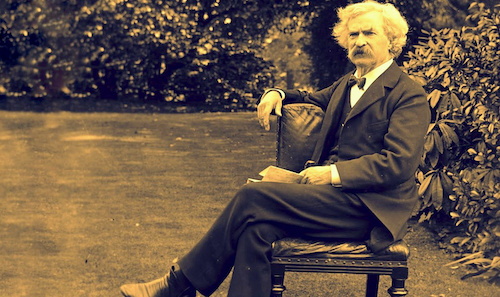
There's no shame in writing water. Not every screenwriter has to aspire to write the next great revered classic. If you can accomplish that, wonderful. However, everybody loves a great comedy, horror flick, or action thriller. In some eyes (yours truly), Die Hard is one of the greatest screenplay ever written.
Mark Twain passed away on April 21st, 1910. But his legend lives on.
Read ScreenCraft's 33 Screenwriting Lessons from the Philosophy of Bruce Lee!
Ken Miyamoto has worked in the film industry for nearly two decades, most notably as a studio liaison for Sony Studios and then as a script reader and story analyst for Sony Pictures.
He has many studio meetings under his belt as a produced screenwriter, meeting with the likes of Sony, Dreamworks, Universal, Disney, Warner Brothers, as well as many production and management companies. He has had a previous development deal with Lionsgate, as well as multiple writing assignments, including the produced miniseries Blackout, starring Anne Heche, Sean Patrick Flanery, Billy Zane, James Brolin, Haylie Duff, Brian Bloom, Eric La Salle, and Bruce Boxleitner. Follow Ken on Twitter @KenMovies
For all the latest ScreenCraft news and updates, follow us on Twitter, Facebook, and Instagram.
Tags
Get Our Screenwriting Newsletter!
Get weekly writing inspiration delivered to your inbox - including industry news, popular articles, and more!



















